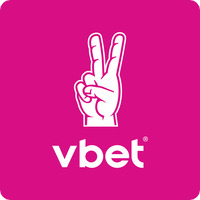Since the first virtual wager was placed back in 1994, the digital betting landscape has seen remarkable progress. Over the last thirty years, leaps in tech have continuously altered how we engage with online gambling—from the boom of mobile betting apps to the rise of digital currencies.
We're standing on the brink of a new era in online gambling, driven by cutting-edge technologies like AI, AR, and blockchain. This narrative dives into the past trajectory, current standing, and prospective evolution of digital betting for both the players and the platforms.
A Brief History of Online Betting
The origin of internet-based gambling can be pegged to 1994, thanks to Antigua and Barbuda's legislative move that allowed online casinos to flourish. Early brands like Microgaming and Casino-on-Net were the pioneers, shaping the multi-billion dollar industry we see today.
As the new millennium approached, a global explosion in online wagering occurred, propelled by faster internet and a desire for digital entertainment. Gamblers began to appreciate benefits like secure online payments and an ever-expanding game selection. The smartphone revolution then put gambling power in the palm of our hands.
The Current Landscape
Come 2025, and online betting sites boast more features than ever, with real-time betting options, instant cash-outs, and various payment methods including cryptocurrencies, which enable swift, secure, and discrete transactions for users—like those done with Binance Coin. BNB gambling But innovation never ceases. With upcoming tech like AI, blockchain, and enhanced realities such as AR/VR, the scope of online gambling is on the verge of transformation.
What Lies Ahead for Online Betting Platforms?
1. Artificial Intelligence (AI)
AI is set to be at the heart of digital wagering, offering sophisticated data analysis, personalized betting experiences, and efficiency boosts.
- Data-Driven Insights: AI's capability to analyze expansive datasets, ranging from player stats to betting trends, will produce more precise odds and forecasts, facilitating more informed wagers.
- Tailored User Experiences: AI-fueled interfaces will tailor suggestions, highlighting personalized bets fitting a user's habits and preferences, possibly showcasing a bettor's successful past strategies.
- Security Enhancements: AI systems can detect inconsistent betting habits to identify potential fraudulent activities, ensuring fairness across the board.
2. Blockchain Technology
Blockchain is carving its mark by ushering in decentralized gambling platforms and smart contracts.
- Peer-to-Peer Betting: Taking intermediaries out of the equation, blockchain supports direct peer-to-peer wagers with reduced costs.
- Automated Trust with Smart Contracts: These operate independently, securing automatic and tamper-proof payouts, thus fostering trust among players and operators.
- Transparent and Reliable Records: The visibility that blockchain provides allows users to verify game fairness, bolstering trust in the system.
3. Immersive Experiences with AR and VR
AR and VR technologies promise to revolutionize engagement with online gambling platforms.
- AR-Enhanced Betting: Picture tracking a live sports event while updated betting insights overlay seamlessly via AR glasses.
- Immersive Virtual Casinos: VR can recreate the atmosphere of a physical casino, enabling real-time interactions with dealers and fellow gamblers.
4. Expanding Betting Markets
Emerging markets like esports, virtual sports, and forex trading are becoming staples in the betting domain, with digital currencies like Binance Coin getting more play, displaying their adaptive nature.
“From traditional sports wagering to innovative crypto-enabled platforms, the industry's future hinges on catering to a broader audience with diverse tastes.”
An Exciting Future Ahead
The digital gambling industry is on the verge of a transformative epoch, fueled by cutting-edge innovations and shifting player expectations. As AI and blockchain redefine the scene, these platforms will evolve to be more intelligent, immersive, and user-centric.
For both enthusiasts and providers, staying abreast of these evolving trends is vital to prosper in this rapidly transforming field.

































